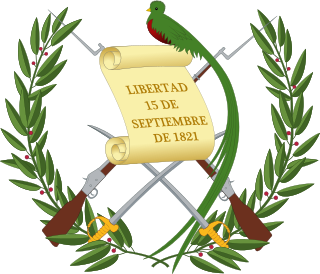Freedom of Information Act may refer to the following legislations in different jurisdictions which mandate the national government to disclose certain data to the general public upon request:
Defamation is the act of communicating to a third party false statements about a person, place or thing that results in damage to its reputation. It can be spoken (slander) or written (libel). It constitutes a tort or a crime. The legal definition of defamation and related acts as well as the ways they are dealt with can vary greatly between countries and jurisdictions.

Freedom of the press or freedom of the media is the fundamental principle that communication and expression through various media, including printed and electronic media, especially published materials, should be considered a right to be exercised freely. Such freedom implies the absence of interference from an overreaching state; its preservation may be sought through constitution or other legal protection and security. It is in opposition to paid press, where communities, police organizations, and governments are paid for their copyrights.
Freedom of information laws allow access by the general public to data held by national governments and, where applicable, by state and local governments. The emergence of freedom of information legislation was a response to increasing dissatisfaction with the secrecy surrounding government policy development and decision making. In recent years Access to Information Act has also been used. They establish a "right-to-know" legal process by which requests may be made for government-held information, to be received freely or at minimal cost, barring standard exceptions. Also variously referred to as open records, or sunshine laws, governments are typically bound by a duty to publish and promote openness. In many countries there are constitutional guarantees for the right of access to information, but these are usually unused if specific support legislation does not exist. Additionally, the United Nations Sustainable Development Goal 16 has a target to ensure public access to information and the protection of fundamental freedoms as a means to ensure accountable, inclusive and just institutions.
FOIA or Foia may refer to:
The American Library Association (ALA) is a nonprofit organization based in the United States that promotes libraries and library education internationally. It is the oldest and largest library association in the world, with 49,727 members as of 2021.

The Freedom of Information Act (FOIA), 5 U.S.C. § 552, is the United States federal freedom of information law that requires the full or partial disclosure of previously unreleased or uncirculated information and documents controlled by the U.S. government, state, or other public authority upon request. The act defines agency records subject to disclosure, outlines mandatory disclosure procedures, and includes nine exemptions that define categories of information not subject to disclosure. The act was intended to make U.S. government agencies' functions more transparent so that the American public could more easily identify problems in government functioning and put pressure on Congress, agency officials, and the president to address them. The FOIA has been changed repeatedly by both the legislative and executive branches.

The Data Protection Act 1998 was an Act of Parliament of the United Kingdom designed to protect personal data stored on computers or in an organised paper filing system. It enacted provisions from the European Union (EU) Data Protection Directive 1995 on the protection, processing, and movement of data.
AIA or A.I.A. or Aia may refer to:

The Freedom of Information Act 2000 is an Act of the Parliament of the United Kingdom that creates a public "right of access" to information held by public authorities. It is the implementation of freedom of information legislation in the United Kingdom on a national level. Its application is limited in Scotland to UK Government offices located in Scotland. The Act implements a manifesto commitment of the Labour Party in the 1997 general election, developed by David Clark as a 1997 White Paper. The final version of the Act was criticised by freedom of information campaigners as a diluted form of what had been proposed in the White Paper. The full provisions of the act came into force on 1 January 2005.
Personal data, also known as personal information or personally identifiable information (PII), is any information related to an identifiable person.
Cohen may refer to:
The Right to Information (RTI) is an act of the Parliament of India which sets out the rules and procedures regarding citizens' right to information. It replaced the former Freedom of Information Act, 2002. Under the provisions of RTI Act, any citizen of India may request information from a "public authority" which is required to reply expeditiously or within thirty days. In case of matter involving a petitioner's life and liberty, the information has to be provided within 48 hours. The Act also requires every public authority to computerize their records for wide dissemination and to proactively publish certain categories of information so that the citizens need minimum recourse to request for information formally.

Freedom of panorama (FOP) is a provision in the copyright laws of various jurisdictions that permits taking photographs and video footage and creating other images of buildings and sometimes sculptures and other art works which are permanently located in a public place, without infringing on any copyright that may otherwise subsist in such works, and the publishing of such images. Panorama freedom statutes or case law limit the right of the copyright owner to take action for breach of copyright against the creators and distributors of such images. It is an exception to the normal rule that the copyright owner has the exclusive right to authorize the creation and distribution of derivative works. The phrase is derived from the German term Panoramafreiheit.
Most Internet censorship in Thailand prior to the September 2006 military coup d'état was focused on blocking pornographic websites. The following years have seen a constant stream of sometimes violent protests, regional unrest, emergency decrees, a new cybercrimes law, and an updated Internal Security Act. Year by year Internet censorship has grown, with its focus shifting to lèse majesté, national security, and political issues. By 2010, estimates put the number of websites blocked at over 110,000. In December 2011, a dedicated government operation, the Cyber Security Operation Center, was opened. Between its opening and March 2014, the Center told ISPs to block 22,599 URLs.
Freedom of Information and Protection of Privacy Act may refer to:

The Constitution of Guatemala is the supreme law of the Republic of Guatemala. It sets the bases for the organization of Guatemalan government and it outlines the three main branches of Guatemalan government: executive branch, legislative branch, and judicial branch.

Freedom of speech is the concept of the inherent human right to voice one's opinion publicly without fear of government censorship or punishment. "Speech" is not limited to public speaking and is generally taken to include other forms of expression. The right is preserved in the United Nations Universal Declaration of Human Rights and is granted formal recognition by the laws of most nations. Nonetheless, the degree to which the right is upheld in practice varies greatly from one nation to another. In many nations, particularly those with authoritarian forms of government, overt government censorship is enforced. Censorship has also been claimed to occur in other forms and there are different approaches to issues such as hate speech, obscenity, and defamation laws.

The Copyright and Information Society Directive 2001 is a directive in European Union law that was enacted to implement the WIPO Copyright Treaty and to harmonise aspects of copyright law across Europe, such as copyright exceptions. The directive was first enacted in 2001 under the internal market provisions of the Treaty of Rome.

Freedom of speech is a principle that supports the freedom of an individual or a community to articulate their opinions and ideas without fear of retaliation, censorship, or legal sanction. The right to freedom of expression has been recognised as a human right in the Universal Declaration of Human Rights and international human rights law by the United Nations. Many countries have constitutional law that protects free speech. Terms like free speech, freedom of speech, and freedom of expression are used interchangeably in political discourse. However, in a legal sense, the freedom of expression includes any activity of seeking, receiving, and imparting information or ideas, regardless of the medium used.

Media freedom in the European Union is a fundamental right that applies to all member states of the European Union and its citizens, as defined in the EU Charter of Fundamental Rights as well as the European Convention on Human Rights. Within the EU enlargement process, guaranteeing media freedom is named a "key indicator of a country's readiness to become part of the EU".